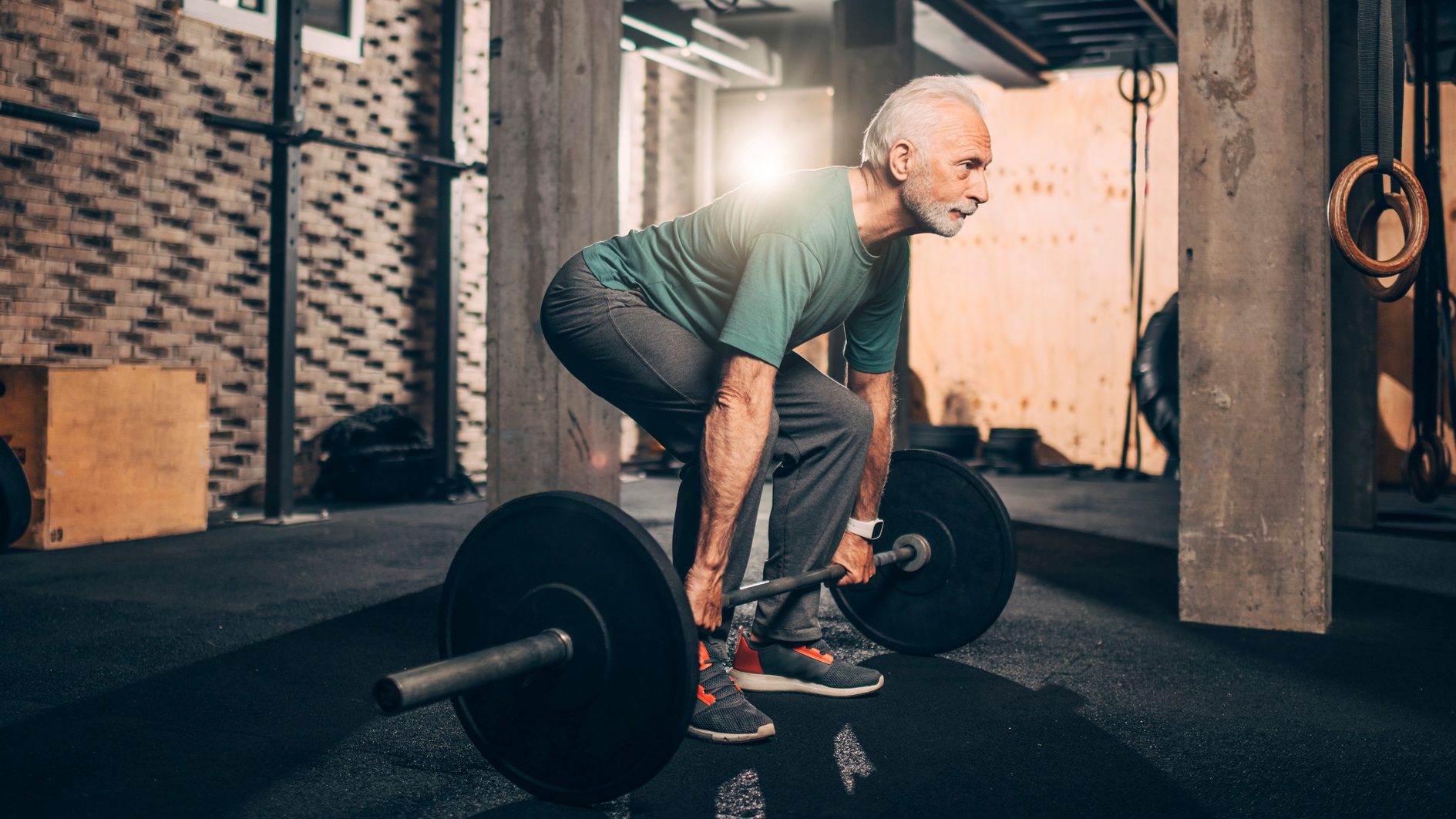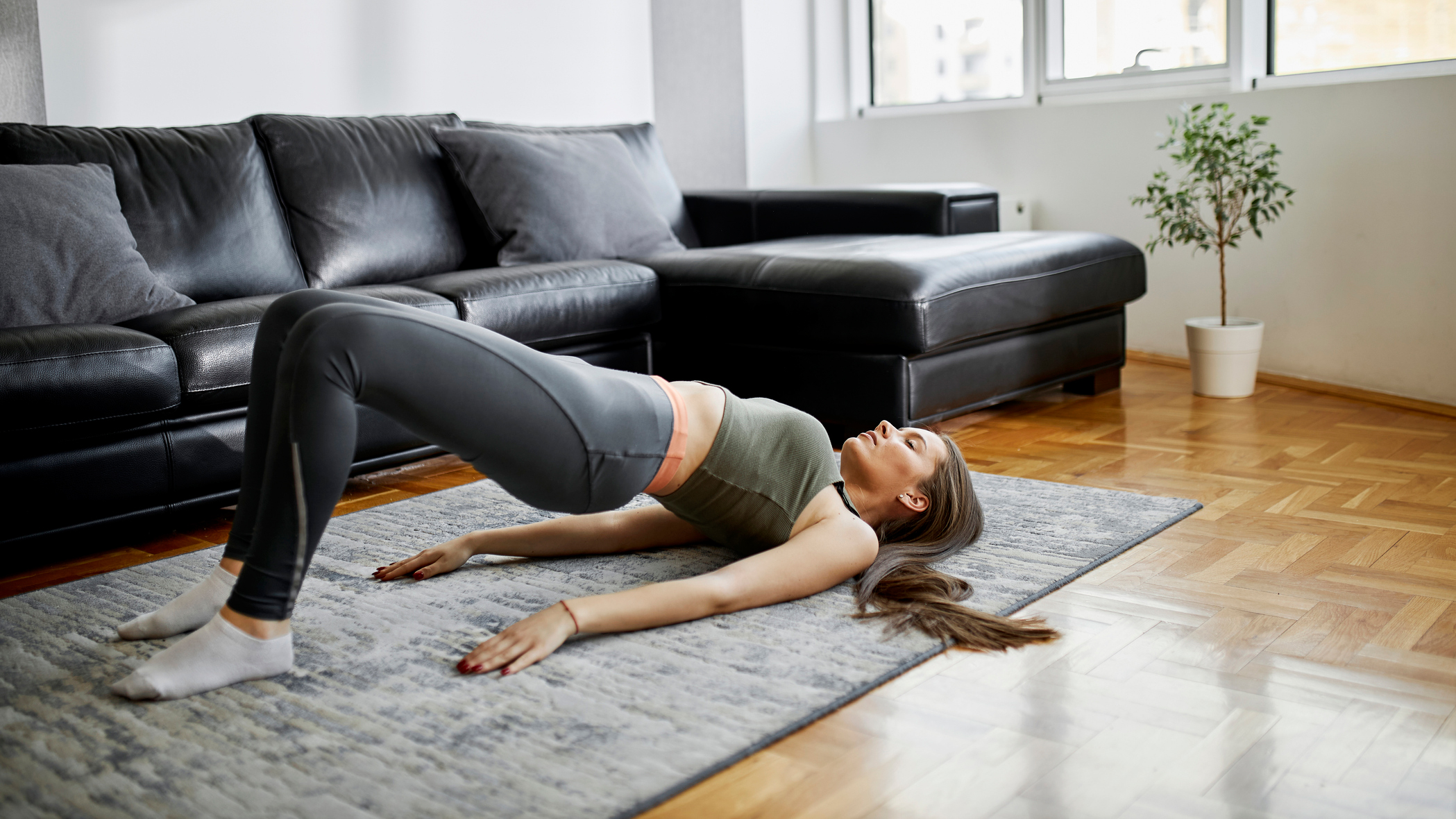Three science-backed exercises you can do to help fix lower back pain today
Undo the damage of too much sitting with this trio of exercises designed to reverse lower-back pain and muscular atrophy


Start your week with achievable workout ideas, health tips and wellbeing advice in your inbox.
You are now subscribed
Your newsletter sign-up was successful
Lower back pain is an issue very common among people who live a largely sedentary lifestyle. If you're in an office chair which isn't conducive to good posture (and if you are, I recommend you head straight to our best office chair guide), lower back pain can be a real... well, pain.
Fortunately, there's a few exercises you can do to mitigate this. Most of them have to do with strengthening the lower back, core and "posterior chain" of muscles, including the hamstrings and glutes. Combined with regular stretching exercises, you should begin to see an improvement to both your pain and your physique in record time.
1. Deadlifts
When it comes to activating your lower back, legs and glutes, deadlifts are the king of exercises. Lifting something heavy off the ground, with proper form, is one of the most fundamental (and helpful) exercises you can do. Need to move a sofa or table, or lift a bag of soil during a bit of gardening? Deadlifts.
Deads can also help banish back pain, according to one study published in the journal Advances in Physiotherapy. Participants with persistent lower back pain, originating in the discs of the spine, were treated with regular deadlift training sessions and found it helped with pain intensity and function.
A word of caution: lifting heavy with your back needs to be done with correct form, otherwise you could do more harm than good – especially if you suffer from lower back pain. Our guide on how to deadlift properly is a good place to start, but lift light, and if you suffer from chronic lower back pain, you might want to consult a doctor before lifting heavy.
Glute bridges

Remember the Eric Prydz video to Call on Me? Performing regular glute bridge thrusts can have a beneficial effect beyond sculpting a nicer butt. Korean researchers found glute-sculpting exercises, like the glute bridge, resulted in "a greater decrease in low back pain disability index and increase in lumbar muscle strength and balance ability".
The study found all those who complain of low back pain experience a decrease in muscle strength, muscle endurance, and flexibility, and limited range of motion when it comes to lumbar and lower limb joints.
Start your week with achievable workout ideas, health tips and wellbeing advice in your inbox.
Unlike the deadlift above, glute bridges don't require any special gym kit to perform: you just need a bit of floor space and away you go. Ensure you keep your shoulders and feet on the floor and drive your heels into the ground.
Squats
Whether loaded with a heavy weight or just done with your body weight, squats work the posterior chain of muscles just like the deadlift and the glute bridge, and can be an incredibly versatile exercise. You can perform them with barbells, dumbbells, kettlebells or sandbags, perform them slowly to increase the burn on your thighs, add a jump to increase plyometric power, or place the weight on your back or front.
All these variations tackle your muscles in different ways. However, at its core, squats are working your hamstrings and glutes, improving the skeletal muscle and range of motion in your lower limbs, which connect to your lower back through the posterior chain.
Matt Evans is an experienced health and fitness journalist and is currently Fitness and Wellbeing Editor at TechRadar, covering all things exercise and nutrition on Fit&Well's tech-focused sister site. Matt originally discovered exercise through martial arts: he holds a black belt in Karate and remains a keen runner, gym-goer, and infrequent yogi. His top fitness tip? Stretch.
